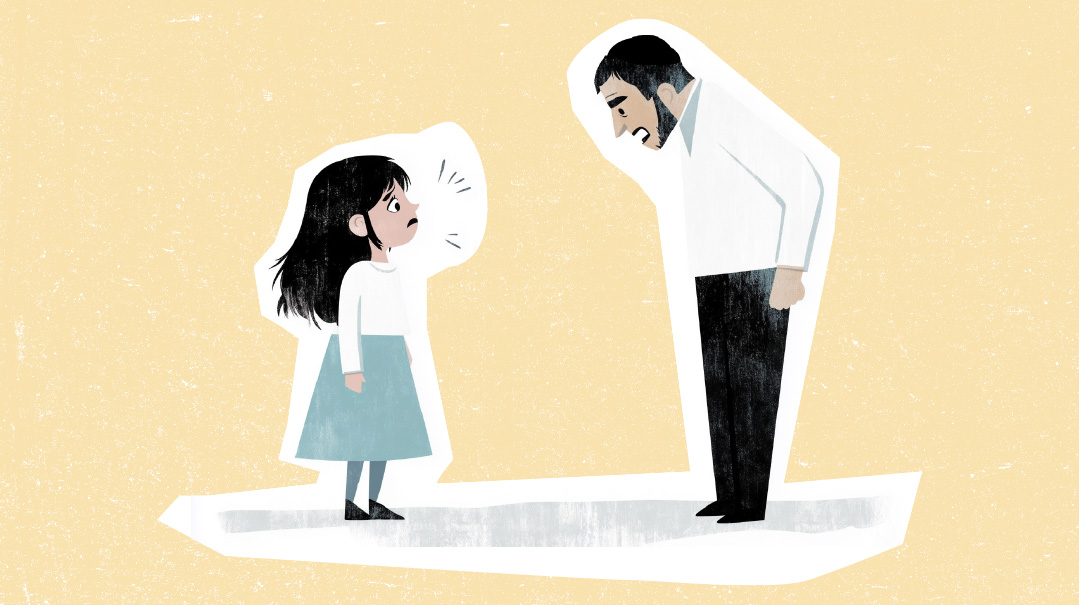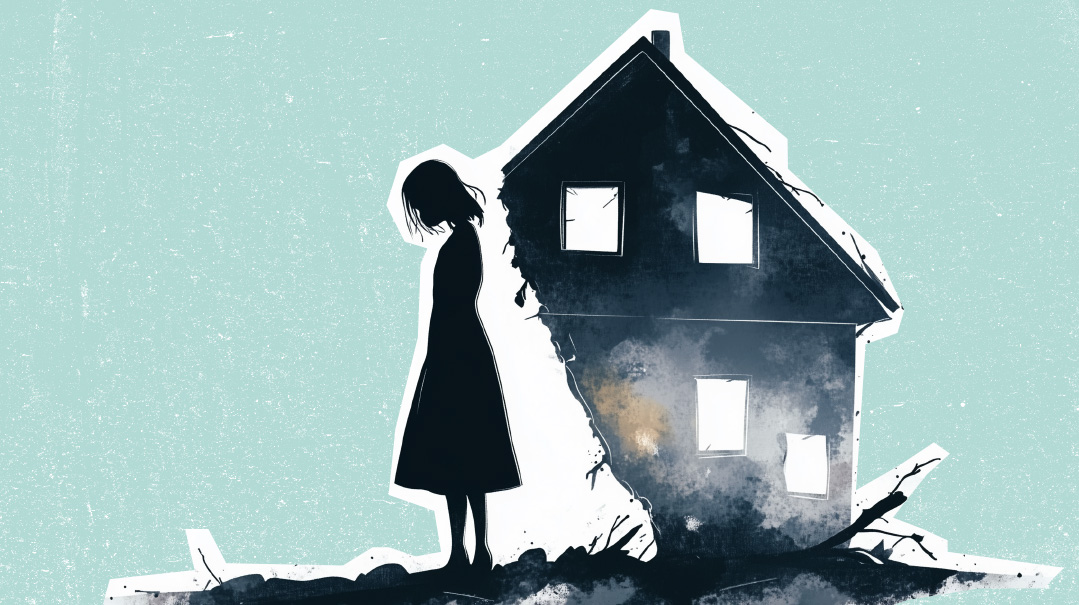Dear Mrs. Radcliffe: Supporting My Children

"How can I support my children when they’ve been yelled at, while also showing a unified front with my husband?"
Question

Dear Mrs. Radcliffe,
Thank you very much for your column. I always gain tremendously from it.
When my children do something wrong, my husband will often raise his voice at them and say hurtful things, like, “You’re always crying, you act like a baby,” “Why can’t you ever listen?” or he’ll yell at them for making a mess.
I’ve tried speaking to him about it, and he agrees it’s not good. He’s read a few self-help books and seems to be working on it, but he regularly slips up.
My question is this: How can I support the children when they’ve been yelled at, while also showing a unified front with my husband? In general, he interacts very positively with the kids, and they love him.
Thank you.
Answer
Part of the answer to your question is contained within your letter. You say your husband “interacts very positively with the kids.” If you think so, your children probably also do. You yourself might have had a moment when you spoke less-than-perfectly to your kids, but you might not have worried about it too much because you know that your children feel secure in your love.
And while I’m no fan of yelling or insulting, I feel that when the love is very clear, less damage is caused by occasional imperfect parenting. So don’t panic when your husband’s intervention leaves something to be desired.
Even so, you’re also correct in noting that your children may benefit from emotional support after being unkindly reprimanded. Giving this support will teach them many vital lessons: 1) Talking about feelings is a normal human activity and that emotional distress can be articulated — feelings can be named. 2) Feeling hurt when unkindly treated is normal and to be expected — the child can trust his or her own inner experience. 3) One can turn to other human beings for support — we don’t have to suffer in isolation. 4) Expressing feelings is a healthy way to relieve and heal emotional pain — we don’t have to employ dissociative and addictive strategies to manage distress. 5) Listening to others compassionately is the way to support other people’s pain — your model will teach them how it’s done.
If you’ve proven yourself to be accessible in the past, your child may open the conversation by saying something like, “I hate him.” In that case, temporarily ignore the inappropriate style and redirect the child by responding, “It’s very upsetting to be called a baby, especially by your father. It’s really insulting and hurtful.” If the child continues to express frustration, continue to name feelings. Your very presence validates the child’s experience; you don’t need to talk about his father at all.
In fact, when we’re hurt, we should never waste time or energy exploring the offender’s faults because that doesn’t lead to healing. Addressing our own wound — what has been crushed inside — is what is necessary and effective. Help your child to feel, name, and thus release the pain of the incident.
If your child doesn’t raise the issue, you should approach her and say something like, “I’m guessing you’re pretty upset right now.” Even if the child indicates she doesn’t want to talk about it, your brief acknowledgment of her inner world can convey many of the lessons described earlier.
Your child may feel not only hurt, but also exasperated and/or angry. Why is her father allowed to be insulting when she and her siblings are constantly reprimanded for engaging in such behavior? The best would be if your husband would say something directly to the child acknowledging his mistake. Otherwise, if he is uncomfortable, you can can act on his behalf, and a short, unapologetic, true answer usually suffices: “Your father didn’t learn how to express himself properly when he was little and this makes a problem for him now. You’re lucky that when you grow up, you’ll already know how to express frustration the right way.”
Finally, if a child questions his parent’s love, you can say something like, “Your father loves you, honey. He just gets really upset when he sees you doing such-and-such. He doesn’t always express himself the right way. We’re working on it.”
Your calm acceptance of less-than-perfect behavior actually helps the child feel safe at many levels. He learns that having his own imperfections won’t render him unlovable. And he knows his home is secure with parents who are committed, patient, and tolerant. It’s a place where mistakes are safe to make and each family member can be authentic and loved at the same time.
Have a question for Mrs. Radcliffe? Send your queries about parenting or personal growth to familyfirst@mishpacha.com
(Originally featured in Family First, Issue 750)
Oops! We could not locate your form.











